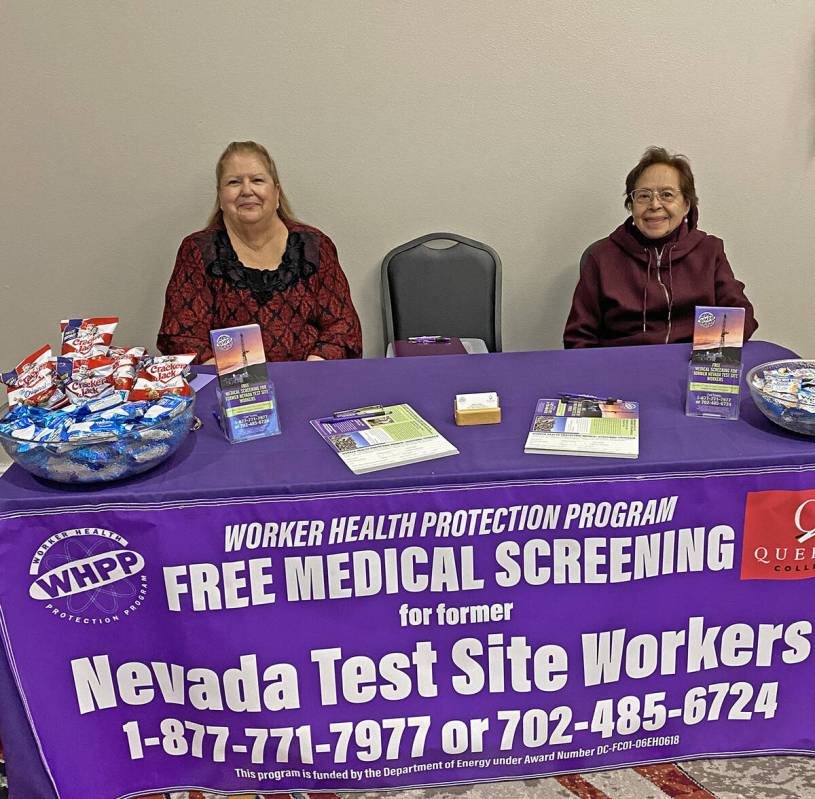
With the former Nevada Test Site located entirely within the boundaries of Nye County, over the course of the nuclear-testing facility’s history, many of its employees hailed from communities such as Pahrump, Amargosa and Beatty.
But that employment came with health risks associated with the various hazardous materials to which workers were exposed.
As a result, anyone who was employed at the test site before its closure in the early 1990s is encouraged to check their eligibility for the Workers Health Protection Program (WHPP) Early Lung Cancer Detection Program, an initiative that is marking 25 years of life-saving screenings this year.
“Lung cancer is the leading cause of cancer-related death in the U.S., claiming more lives every year than breast cancer and colon cancer combined,” WHPP reported. “Many U.S. Dept. of Energy (DOE) workers are at increased risk due to working with radiation and toxic substances. This year, the WHPP celebrates 25 years of its early lung cancer detection program, which helps identify lung cancer in early, treatable stages.”
WHPP’s Early Lung Cancer Detection Program started in 2000 for employees from three DOE plants and has now expanded to 15 total DOE sites from eight different states, including the former Nevada Test Site, now known as the Nevada National Security Site.
“Because lung cancer usually spreads beyond the lungs before causing any symptoms, an effective screening program for early detection of lung cancer has the potential to save many lives,” information on the program details. “About 130,000 people in the U.S. will die of lung cancer each year. Without screening, over 50% of lung cancers are found at a late stage and the overall five-year survival rate for lung cancer is currently 20%… By contrast, if lung cancer is found early and treated by surgery, before it has spread to lymph nodes or other organs, the five-year survival rate increases dramatically – to 70% or higher.”
Using low-dose chest CT scans, the screening program has detected 230 cases of lung cancer to date, a vast majority of which were diagnosed at an early, and therefore more treatable, stage.
“The Early Lung Cancer Detection Program is a necessary service for those who worked at the Nevada Test Site (now NNSS) and put their health on the line supporting the testing of nuclear weapons in defense of the nation,” WHPP local coordinator and former test site worker Sandie Medina stated. “Not only does the program save lives through the early detection of lung cancer, it provides peace of mind to so many of my fellow workers who participate annually and learn they do not have lung cancer. We thank the DOE and Congress for the creation and support of this program.”
While it may be celebrating its 25-year milestone with the Lung Cancer Detection Program, WHPP isn’t just about lung cancer. WHPP offers many other free medical exam opportunities to screen for DOE-work-related diseases, such as colorectal and bladder cancer, kidney and liver disease, Chronic Obstruction Pulmonary Disease, hearing loss and more.
To learn more about any of WHPP’s programs visit Worker-Health.org
To schedule an appointment call 888-241-1199 or 702-485-6724 for the local WHPP coordinator.
Contact reporter Robin Hebrock at rhebrock@pvtimes.com